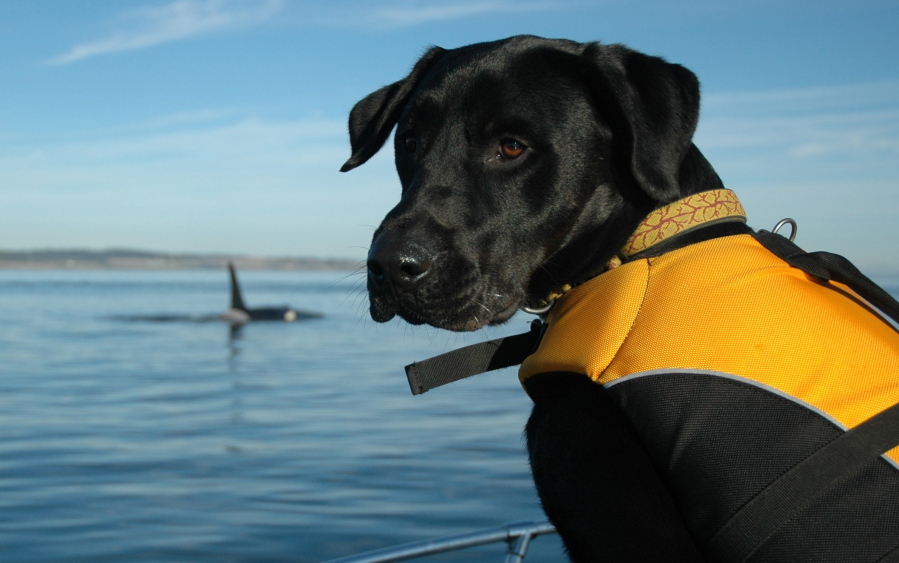SEATTLE — Improving salmon runs could help the endangered killer whales that frequent the inland waters of Washington state, according to a new study that found the orcas cannot find enough fish to eat and that’s causing them to have pregnancy problems.
Researchers analyzed hormones in orca excrement collected at sea and found that more than two-thirds of orca pregnancies failed over a seven-year period. They linked those problems to nutritional stress brought on by a low supply of chinook salmon, the whales’ preferred food.
“A large number of whales are conceiving, but when nutrition is poor, they don’t sustain those pregnancies,” said Sam Wasser, lead author of the paper and a biology professor at the University of Washington.
Southern resident killer whales along the U.S. West Coast have struggled since they were listed as endangered species in 2005. They now number just 78, down from a high of 140 decades ago. The whales face threats from a lack of food, pollution and boats.
The new study, published Thursday in the journal PLOS ONE, zeroes in on food supply as an important stress factor among these fish-eating whales. Unlike other killer whales that eat marine mammals, the orcas that spend the summer in Puget Sound primarily eat salmon, mostly chinook.
Habitat, toxins
Many species of chinook salmon along are listed as threatened or endangered due to factors including loss of habitat from urban development, dams, fishing, pollution and competition from non-native fish.
Toxins that accumulate in the whales’ fat and are released when the animals starve and metabolize that fat also play a role in the pregnancy problems.
“Food is the driver. But what we can’t yet say is how much of that then is affected by its interaction by toxins,” Wasser said.
Using dogs trained on boats to sniff out whale poop, a team of scientists gathered data for the study by collecting nearly 350 excrement samples from 79 whales in inland waters of British Columbia and Washington state between 2008 and 2014.
Back in the lab, they analyzed it for the hormones progesterone and testosterone and assessed whether the orcas were pregnant and at what stages. They also collected DNA to determine the identity, sex and family lines of the whales. Pregnancies were deemed successful if the female whales were later observed with their calves.



